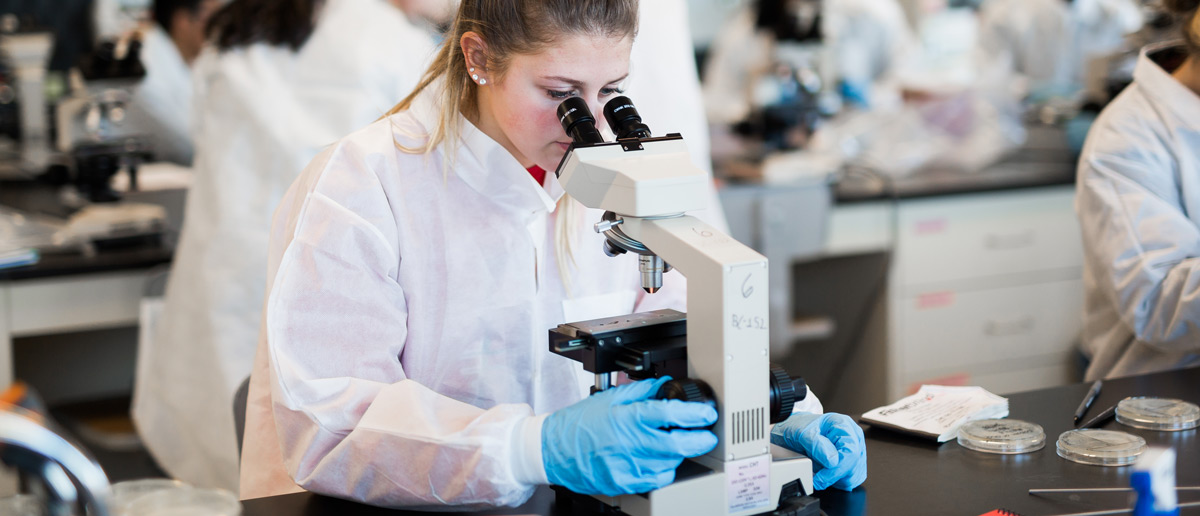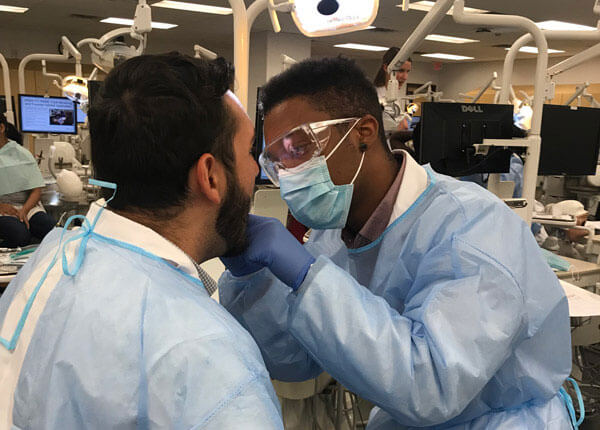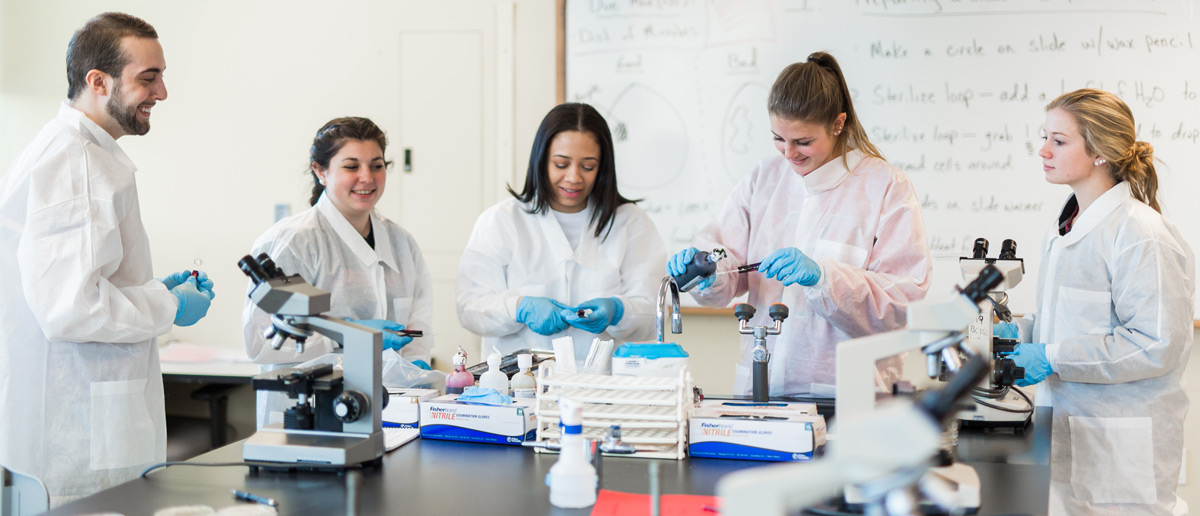
Health Sciences
The Health Sciences program prepares you for professional or graduate study in health-related fields such as occupational therapy, speech pathology, or public health. The program is also available as a minor.
This program prepares you for professional or graduate study. You can pursue the degree on a full- or part-time basis, and you can enter the program as a freshman or a transfer student.
Bachelor of Science
123

Our health sciences program grounds you in the liberal arts with a firm foundation in the sciences, while providing a broad overview of the health care system. By majoring in health sciences, you can prepare for future study in a wide range of health care careers.
Although this is a non-clinical program, it will prepare you for graduate programs in fields such as medicine, dentistry, physician assistant, optometry, chiropractic, pharmacy, or podiatry.
The program includes three pre-professional advising seminars that review the requirements and timetables for professional school entrance, and prepare students to take admission tests and prepare for preadmission interviews.
The University of Hartford maintains agreements with several professional schools that enable students to earn a combined BS in Health Sciences and a professional degree. See the following pages for more information on these programs:
The pre-professional curriculum includes courses that many professional graduate programs require (a year of general biology and general chemistry, a year of organic chemistry, a year of physics, and one semester of cell biology, microbiology, and biochemistry).
Additionally, you will take courses that introduce you to a wide range of health-related topics. Examples include Educational Strategies for Healthcare Professionals, Introduction to Immunology, Introduction to Public Health, and Cardiovascular Disease.
The Health Sciences Pre-Professional program is a minimum of 123 credits. A sample of courses is listed below; view the full curriculum using the link to the course catalog:
Students will take 61-62 credits of science courses, which include:
Introductory BiologyStudents also complete at least 12 credits of Health Science coursework and 3 credits of Pre-Professional Seminars. Health Science courses include:
Epidemics and AIDSElectives: All students will complete an additional 9 credits of coursework. This allows students to take prerequisite courses for graduate programs to which they are applying. Examples of classes students take include:
Calculus 1Students must complete 38 credits of general education requirements. These may include:
Academic Writing
The health care industry is projected to add more jobs— more than 1.8 million— than any other industry from 2022 to 2032, according to the U.S. Bureau of Labor Statistics. It is projected to be among the fastest-growing industries in the economy.
BS in Health Sciences Pre-Professional, '21
"UHart's faculty genuinely want you to succeed and they get to know each one of their students. Their support pushed me to continue pre-pharmacy and to never give up on it."
For admission into the Department of Health Sciences, 16 units of secondary subjects are expected, among which the following are strongly recommended:
English - 4 unitsTransfer Students
If you are applying as a transfer student, you will submit your application and documentation to our Office of Admission. The staff are knowledgeable about credit articulation agreements that we have with other institutions and work closely with the College of Education, Nursing and Health Professions to provide transfer students with the information they need to make a smooth transition.
Upper-level program applicants should hold the appropriate professional certification or license, and their academic records should include formal clinical study from an accredited program. If you are considering one of our pre-professional programs (pre-chiropractic, pre-optometry, pre-pharmacy, or pre-podiatry), please see the specific program page.
Applicants who have completed formal programs of study in allied health or nursing, and hold the appropriate professional certification or license, may be granted up to 60 credits toward the lower-division degree requirements.
Students will demonstrate effective communication skills.
Linda Dahlin
Program Director, Health Sciences
860.768.5026
ldahlin@hartford.edu
The University of Hartford, inclusive of the Health Science program in the College of Education, Nursing and Health Professions, is accredited by the Board of Higher Education of the State of Connecticut and by the New England Commission of Higher Education.

The Health Sciences program prepares you for professional or graduate study in health-related fields such as occupational therapy, speech pathology, or public health. The program is also available as a minor.

The combined BS/PharmD program provides an opportunity for career goals in pharmacy. The accelerated program typically allows for the completion of the BS/PharmD degrees in a seven-year period.

The combined BC/OD provides an opportunity for a career in optometry. The accelerated program typically allows for the completion of the BS/OD degrees in a seven-year period.